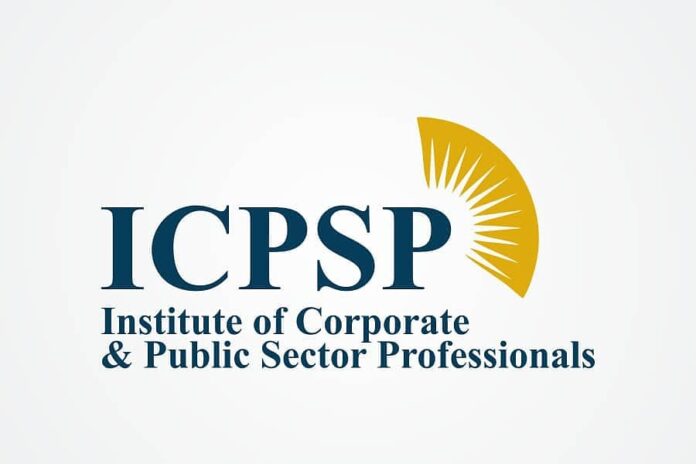The Institute for Corporate and Public Sector Professionals (ICPSP) has called on government to improve investment in health, technology, manufacturing and education as a strategy to reduce adverse effects of the novel coronavirus (COVID-19).
ICPSP made the call in a communique it issued at the end of its 2020 International Conference which held virtually.
The conference had the theme: “Lessons from COVID-19: Sharing Ideas With Experts.
In his address, Prof. Babatunde Yusuf, Dean, Faculty of Management Sciences, Lagos State University (LASU), said investment in the sectors and others was necessary due to a World Bank’s projection.
Yusuf noted that, the World Bank projected a downturn of about -5 per cent for Nigeria in 2020 as a result of oil price collapse due to the COVID-19 pandemic.
He also noted that, the pandemic affected Nigeria’s international trade, having brought massive disruptions to global trade.
“Manufacturers, who relied on imported inputs in Nigeria, faced production challenges and reduced importation of food and pharmaceutical products; thereby putting a heavy burden on households and the healthcare system. Nigeria has lost 80 per cent of its exports as crude oil prices fell”.
According to him, government should take steps to support the healthcare system, provide incentives and safety to the most vulnerable, reduce the cost of governance and improve transparency at all levels.
Yusuf said, the government should prioritise massive investment in infrastructure through the local and international bond markets and investments in a localised ICT industry.
He added that the government should facilitate diversification of the economy through agriculture.
The Lead Speaker, Mr Olanrewaju Sharafa, said that Nigeria and Africa must give priority attention to the prevention of extreme poverty post COVID-19.
Sharafa is a Principal Lecturer and Head of Adult Learning Division, Research and Enterprise, Tower College of Further and Higher Education, London.
He said nations must be committed to social protection policies and programmes to reduce poverty and vulnerability.
He called for increased scrutiny of governments’ palliative spending during and after the novel coronavirus pandemic across Africa.
The don said Sustainable Development Goals (SDGs) were the right responses to the challenges of the 21st century.
He also called for reforms in the judiciary and criminal law enforcement to strengthen the fight against corruption in Nigeria and across Africa.
A panel of discussants, Dr Oluseyi Olanrewaju, Chief Agnes Sessi, Chairperson, Nigeria Labour Congress (NLC), Lagos chapter, and Dr Folasade Airebamen agreed that Nigeria needs increased investments in broadband technology to deepen e-learning.
The panelists said Nigeria needed to also address brain-drain of its healthcare professionals, and give more attention to enhancing digital skills.
According to the panelists, Nigeria must take advantage of the fourth industrial revolution.
They added that professionals, businesses and organisations should explore leveraging technical and creative skills.
Increase Investment in Health, Technology, Manufacturing, Education to Reduce COVID-19 Effects – ICPSP tells FG
- Advertisement -
- Advertisement -
- Advertisement -
- Advertisement -
- Advertisement -

